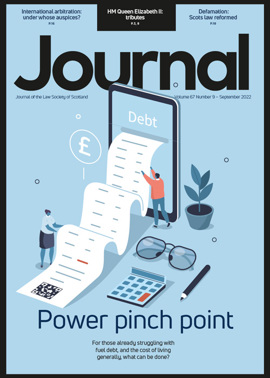The Eternal Optimist: Optimism in crisis time
It’s not easy being the Eternal Optimist, you know: the news is always gloomy and the end of the world is always, well, just round the corner. But one of the few benefits of age is that it gives a degree of perspective, a sense of “I’ve seen something like this before and we’re still here”.
How can we watch the news without becoming disheartened? One theme I like to return to is “Wizards and Prophets”. Charles C Mann wrote a book on it and you will find references across the internet. In brief, prophets believe we are all doomed and the only way to save the planet is to return to a simpler time with less technology. Wizards on the other hand believe that technology will overcome any challenges and make tomorrow a better place. For example, an 1894 Times article predicted that “in 50 years, every street in London will be buried under 9 feet of manure”. It was the invention of the motor car, the source of some of today’s issues, that resolved the horse manure problem. Whether it is battery or hydrogen powered transportation, clean energy or carbon capture, the seeds of the technological solutions to resolve current global warming issues have already been planted.
The uncomfortable or the unknown?
Why are people often inclined to the pessimistic prophecy school? My theory is that generally they don’t like change. The unknown frightens us or, worse, we are simply too lazy or set in our ways, more comfortable with the way things are, or used to be, than with unexplored territory. But what do the facts tell us, rather than our memories or feelings? If we think rationally, what was the past really like? For me, I remember cheaper fuel, but ice on the inside of my windows in winter as we didn’t have central heating; cheaper petrol, but cars that only did 15 miles to the gallon; and worst of all, only three TV channels! The filters through which we see the past are a challenge for the best of us.
Through most of the last century the data are a lot more positive than today’s news would have us believe. Conflict between nations has dropped dramatically; we have been living in peaceful times and overall still are. Extreme poverty has reduced and life expectancy increased, as has our access to information. Now we are on the verge of quantum computing, travelling to Mars, curing cancer and even creating the replicator from Star Trek (look at www.cana.com). Even a global pandemic has brought some incredible advances in medicine.
In law, would we actually want to go back to the “good old days”? Was it so great to have to wait weeks for reports or communications, or to type out letters and deeds (or even handwrite them by candlelight)? Do we really want to go back to settlements on site with a ceremonial exchange of a piece of turf? Of course, many things could be better, but going backwards is seldom the solution. The question is, what else can we do to make our businesses and our lives better still for ourselves, staff and clients, and to deal with the issues we currently face?
Wizarding tools
What then is an optimist to do? In business, as I suspect you are already doing, keep our house in order. Work to reduce and where possible eliminate any borrowings to protect ourselves from interest rate increases. Work on our credit control to reduce debtors to a minimum. Look at business costs and prune where prudent. Not rocket science, just good old fashioned common sense that we all know but sometimes don’t have the time for. On the positive side, can we expand our service offerings in areas that are less affected by recession (private client?), or may even prosper during it (insolvency?). We can work to keep service quality and client engagement high so we remain the first point of contact both during and after any challenging times ahead. We can look at opportunities such as mergers and lateral hires that any market downturn might provide. We can invest in technology and training to simplify our processes and leverage our time and profitability.
Even an eternal optimist, though, requires to temper their outlook with realism. We are undoubtedly in an unsettling period and there are more challenges facing us than for many years: inflation, utility prices, the Ukrainian conflict, and political issues not only here but in the US, Brazil and parts of Europe. As the number of issues increases, the possibility grows of one of these developing into a more serious crisis. Investment in the macro world issues as well as the micro business issues has never been more important. You have to give the wizards the tools to work with.
The future is always a scary place. History has taught us though that it is also filled with excitement, opportunity and advancement. We need to be vigilant, as inaction and, worse, regression has had dark consequences, but the challenges ahead, be they big or small, are hopefully just the boundaries of a new and better place.
Regulars
Perspectives
Features
Briefings
- Civil court: Pointers to the future
- Intellectual property: Data mining for all
- Agriculture: The next land reform package
- Corporate: Developments and divergence in data
- Sport: Lessons from the Whyte review
- Scottish Solicitors' Discipline Tribunal
- Property: Registration – over a decade?
- In-house: The top team – three more years







